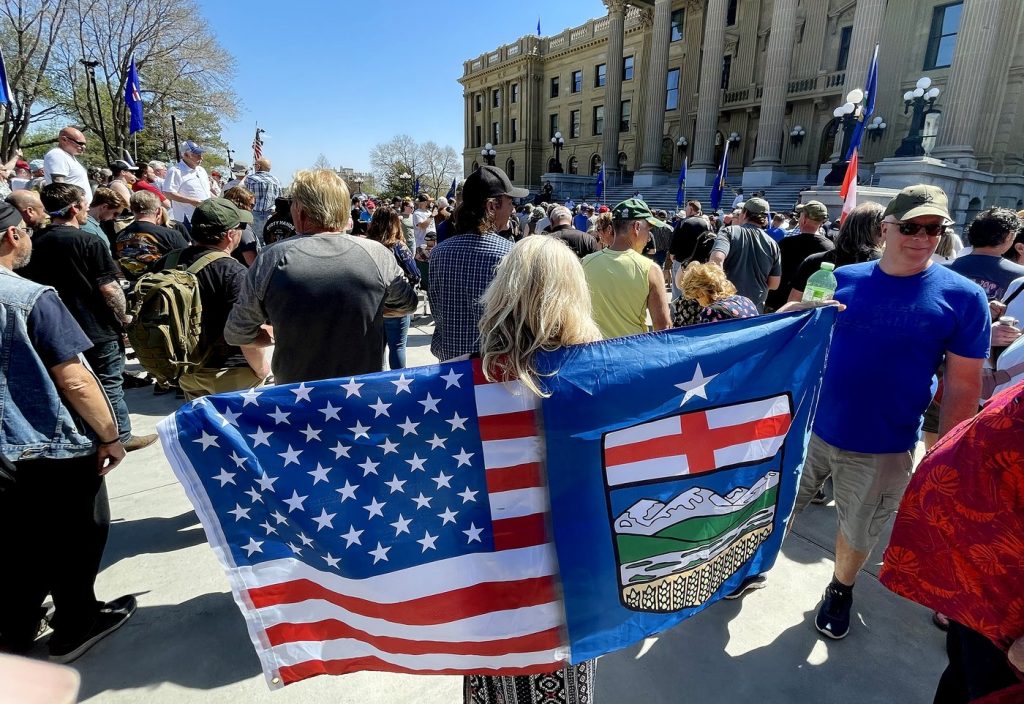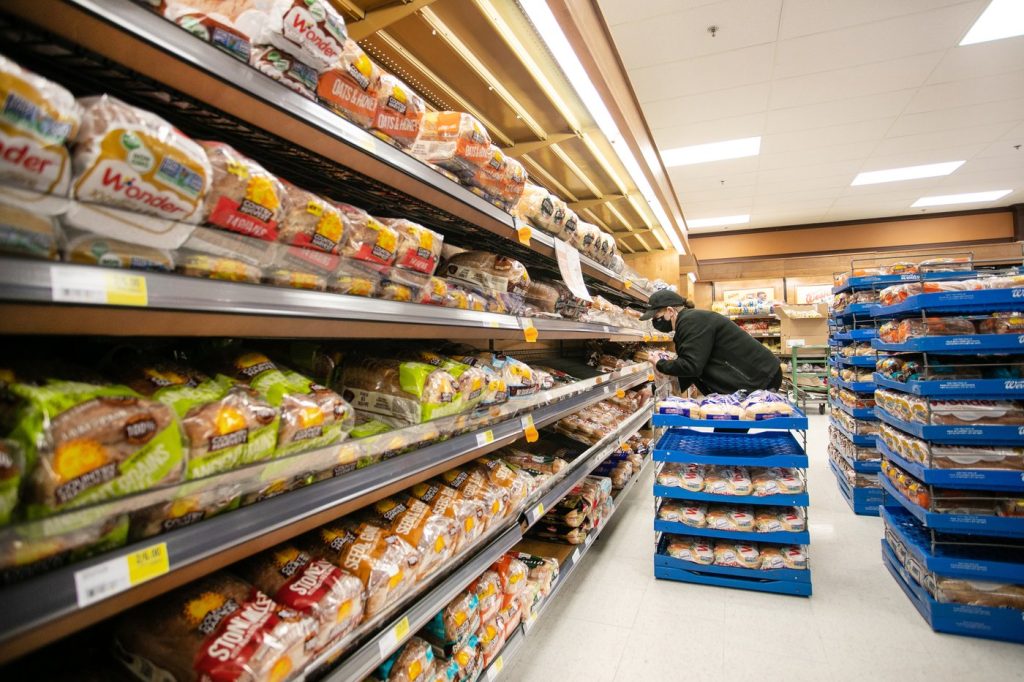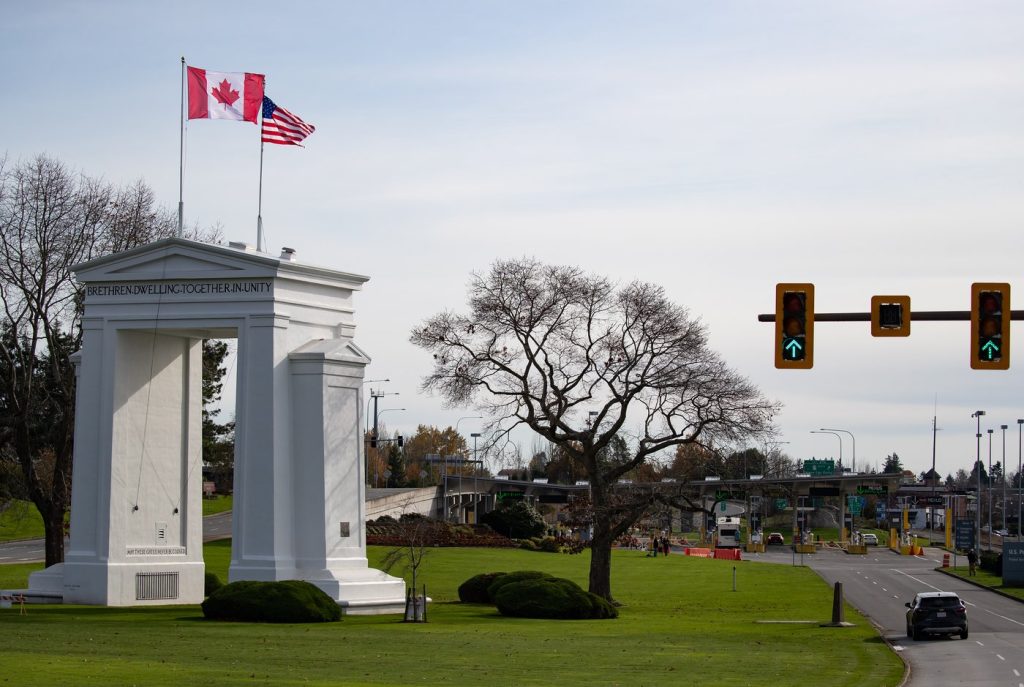EDMONTON — Katheryn Speck, a former Canadian nationalist, found herself at a rally in Edmonton on Saturday, joining hundreds of others who are advocating for Alberta's separation from Canada. This gathering, which took place at the Alberta legislature, saw many participants waving Alberta flags, and a few even displayed the U.S. Stars and Stripes. Speck, who once embraced her Canadian identity and sought fluency in both English and French while living in Quebec, expressed her disillusionment with the current state of the union.
Speck voiced her disappointment in the Canadian government, expressing feelings of disenfranchisement and stating, “I thought it was a beautiful, fantastic country. But now I’m so disappointed. I’m literally crushed that we’ll never be represented in this country.” This sentiment resonates with many rally-goers, especially in light of the recent election win by the federal Liberals, which has intensified calls for an exit from Canada.
The rally comes on the heels of Premier Danielle Smith’s government introducing legislation aimed at lowering the threshold for holding a referendum on separation. Although Smith declined to speculate on potential questions that might be put to voters, the proposed legislation could facilitate a vote on secession from Canada, reflecting a growing sentiment among Albertans who feel neglected by the federal government.
Speck pointed to historical grievances, specifically the National Energy Policy of the 1980s, as a significant factor in her change of heart regarding Canadian nationalism. She indicated that years of Liberal policies have consistently hindered Alberta’s energy industry and led her to believe that meaningful change is unattainable within the confines of Confederation. “Once the votes are counted in Ontario, the election is over. We don’t matter. We never matter,” she lamented.
Seventeen-year-old Hannah Henze, who also attended the rally, suggested that her views on separation might have differed had the Conservatives won the recent election. She remarked, “If (Pierre) Poilievre was in, I feel we’d have a lot more hope than a third or fourth Liberal term, which is just going to ruin our country.” This reflects a broader narrative that many supporters of separation believe that a change in federal leadership could have altered their futures in Canada.
Leo Jensen, another rally participant, expressed frustration over perceived inequalities regarding job protection, highlighting concerns over U.S. tariffs on Canadian auto manufacturing while feeling that Alberta’s oil and gas sector lacks similar support. He criticized Quebec’s stance on environmental regulations regarding pipelines, stating, “I don’t see how a province like Quebec takes all of our dirty money, but they won’t let a dirty pipeline go through Quebec to aid an oil refinery in New Brunswick.”
Counter-protesters were also present at the rally, with dozens expressing their views against the separation movement. Many carried signs emphasizing that separation would violate treaties with First Nations peoples. Piikani Nation Chief Troy Knowlton articulated this perspective, stating that while frustrations within Western Canada are understandable, Alberta lacks the authority to alter treaty agreements.
Premier Smith, in a radio call-in show, reiterated her respect for treaty rights, emphasizing that her actions aim to improve Alberta's relationship with Ottawa while maintaining the sanctity of First Nations treaties. Earlier this week, she had issued a warning about a potential “national unity crisis” unless the new prime minister addresses her government's demands while also affirming her support for a sovereign Alberta within Canada.
Rally attendee Susan Westernaier expressed confidence in Alberta’s ability to thrive independently, stating, “We have the oil, we have the resources. We’re fine,” while also alluding to a belief that the recent election was rigged against the interests of Albertans.
This convergence of opinions at the rally underscores a significant division in perspectives regarding the future of Alberta within Canada and highlights the growing unrest among some residents who feel marginalized by federal policies.












